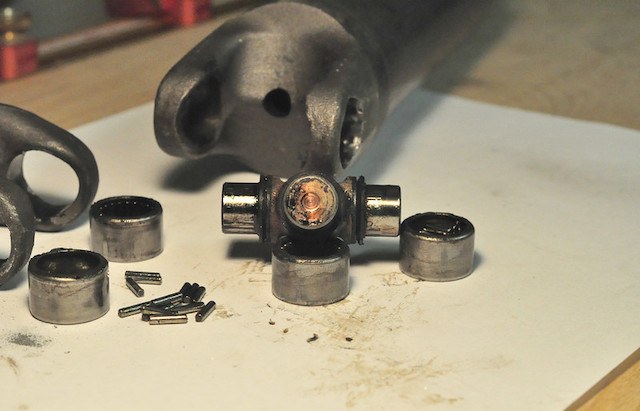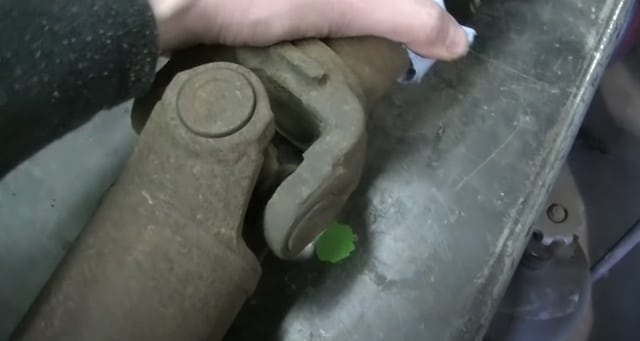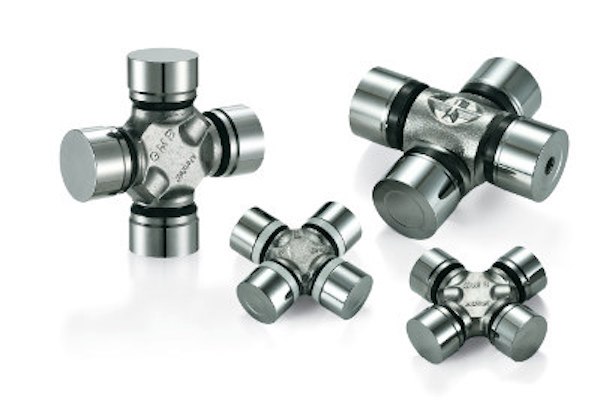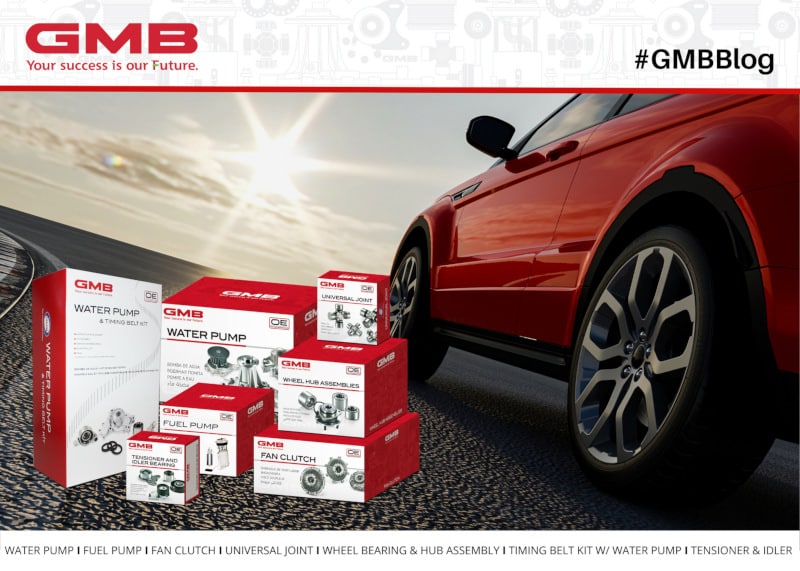Common Questions Consumers Have About Their Universal Joints
Universal joints or U-joints are couplings that connect two rigid shafts together. They are a part of a vehicle’s drivetrain that people take for granted until they start wearing out or need to be replaced. Once that happens, people usually have lots of questions. We’ll cover the most common questions about U-joints in this article.
How Long Do U-Joints Last?

U-joints can last for decades or break when the vehicle is still relatively new. Their lifespan is partly determined by the quality of the U-joint, the type of vehicle, and how that vehicle is used and maintained. But even then, it’s hard to predict how long a U-joint will last. That’s why checking your u-joints at every oil change is a good idea.
Are All U-Joints The Same?
U-joints are not all the same. A typical rear wheel drive vehicle has 2 or 3 u-joints. Some vehicles with a long wheel base, such as buses, have 3 or more u-joints. There are different types of U-joints for different vehicles and applications, and they come in different sizes:
- U-Joint Types: There are two types of U-joints for automotive applications: the cross and roller type and the ball and trunnion type. The cross and roller type is the most common, which allows the drive shaft to bend or pivot at the U-joint. The ball and trunnion type is used less frequently, but in addition to allowing the driveshaft to bend, it also permits it to move backward and forwards.
- U-Joint Sizes: Roller U-joints range in size from a 1210 series with a 2.438″ width and a 1.062″ cap diameter to a 1555 series with a 4.965″ width and 1.375″ cap diameter. Most passenger cars use 1310-series U-joints. However, more powerful, performance-oriented vehicles may use the stronger 1350-series joints. The larger the series number, the bigger the size, which provides more torsional strength to handle more torque.
Why Do U-Joints Seize Up or Fail?

The most common reasons U-joints seize up or fail include:
- Improper maintenance or lubrication: Some u-joints need regular maintenance, which includes greasing the u-joints about every 5,000 miles. Without lubrication, the U-joints will eventually dry up and are more likely to bind. Eventually, this causes the U-joint to seize or break. However, if you have maintenance-free U-joints, you don’t have to lubricate them.
- Bad alignment: If you change the vehicle’s ride height, either by raising or lowering the vehicle, it could cause the U-joint to bend too far. When this happens, it creates more stress on the U-joint, wearing it out faster.
- Wear and tear from extreme use: Vehicles with a lot of torque or that frequently go off-road or are used for towing place additional wear and tear on U-joints causing them to wear out faster.
What Do U-joints Do?
U-joints allow the vehicle’s rigid driveshaft to connect to the transmission and drive wheels while rotating freely. They provide a flexible connection at each end of the driveshaft, allowing it to move up and down or at an angle as the vehicle’s wheels move up and down on the suspension. Without U-joints, a vehicle’s suspension would not allow that wheel travel making for a harsh ride and causing the driveshaft to bind going over any uneven surface.
Do Bad U-joints Squeak/Click/Get Hot?
Bad U-joints will likely vibrate noticeably or make audible clicking sounds. They can also get hot if they lose their lubrication. Sometimes u-joints fail from normal wear and tear, especially on vehicles that are often used for heavy towing or off-roading. U-joints can also fail because of misalignment, corrosion, or excessive vibration. If you know your vehicle is subjected to any of these conditions, you’ll want to be on the lookout for these tell-tale noises and symptoms. If you suspect your U-joints are going bad, get them checked out and replace them.
How Many U-joints Does My Car/Truck Have?

Most rear-wheel drive cars and trucks have two the three U-joints. Some commercial trucks and busses will have three or more U-joints. The exact number of u-joints in your vehicle depends on what type of drive shaft it has. Some drive shafts are jointed, which means additional u-joints.
GMB Is The Leading Brand For U-Joints
At GMB, we’ve specialized in high-quality U-joints since 1943. Many industry experts consider us the leading brand for u-joints because:
- GMB U-joints Are Designed To OE Specs – In fact, many major auto manufacturers hire GMB to build their OEM U-joints.
- GMB U-joints meet or exceed OEM specs and are put through extensive multi-stage testing. We use the highest quality parts and materials.
- GMB U-joints are easy to install – All our U-joints come with the parts needed for easy installation.
If you’ve got questions about U-joints or other products we carry, contact us online or call 1-800-421-5019.
MORE CONTENT
Stay current!
Sign up here to get the latest news
and updates on all things GMB.
Sign Up To Receive GMB News & Updates!

